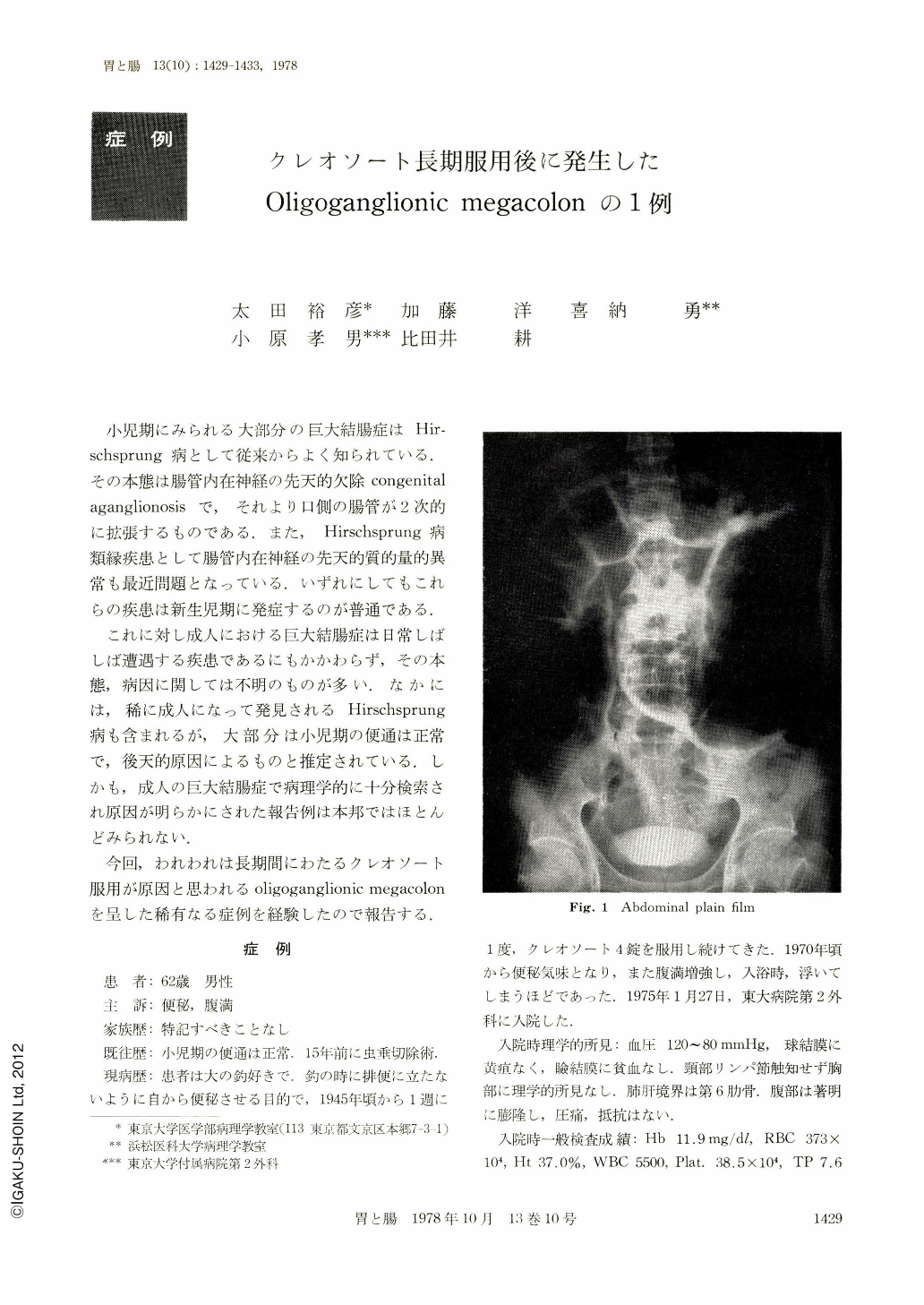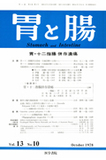Japanese
English
- 有料閲覧
- Abstract 文献概要
- 1ページ目 Look Inside
- サイト内被引用 Cited by
小児期にみられる大部分の巨大結腸症はHirschsprung病として従来からよく知られている.その本態は腸管内在神経の先天的欠除congenital aganglionoslsで,それより口側の腸管が2次的に拡張するものである.また,Hirschsprung病類縁疾患として腸管内在神経の先天的質的量的異常も最近問題となっている.いずれにしてもこれらの疾患は新生児期に発症するのが普通である.
これに対し成人における巨大結腸症は日常しばしば遭遇する疾患であるにもかかわらず,その本態,病因に関しては不明のものが多い.なかには,稀に成人になって発見されるHirschsprung病も含まれるが,大部分は小児期の便通は正常で,後天的原因によるものと推定されている.しかも,成人の巨大結腸症で病理学的に十分検索され原因が明らかにされた報告例は本邦ではほとんどみられない.
A 62-year-old man, who had taken Creosote pills orally for 30 years, was admitted with severe constipation and abdominal distention. His bowel habit during childhood was normal. Laparotomy revealed marked dilatation of the ascending and transverse colon. The colon distal to the splenic flexure appeared normal. There was no mechanical obstruction nor any other lesions. The level of resection was determined by multiple frozen sections of the bowel wall and the segmental resection was performed. The surgical specimen consisted of dilated and non-dilated segments in continuity, the latter of which was anal to dilated segment. Histological examination revealed remarkable degeneration and decrease in number of ganglion cells in the Auerbach's and Meissner's plexuses in the most proximal portion of the non-dilated segment, 50 cm in length and adjacent to the dilated segment. In the other distal portion of the non-dilated segment, however, the morphological appearance and number of the ganglion cells in both plexuses were within normal range. The nerve cells in Auerbach's plexuses of the dilated segment showed degeneration and decrease in number to a mild extent, that was interpreted as secondary change due to marked dilatation. Meissner's plexuses in the dilated segment were normal. From those observations and the history of this patient, it was concluced that segmental oligoganglionosis was caused by toxic damage due to long term intake of Creosote, which contains phenol, and aperistalsis in the oligoganglionic segment provoked megacolon secondarily. The reason why oligoganglionisis was localized in the portion of descending colon is discussed.

Copyright © 1978, Igaku-Shoin Ltd. All rights reserved.


